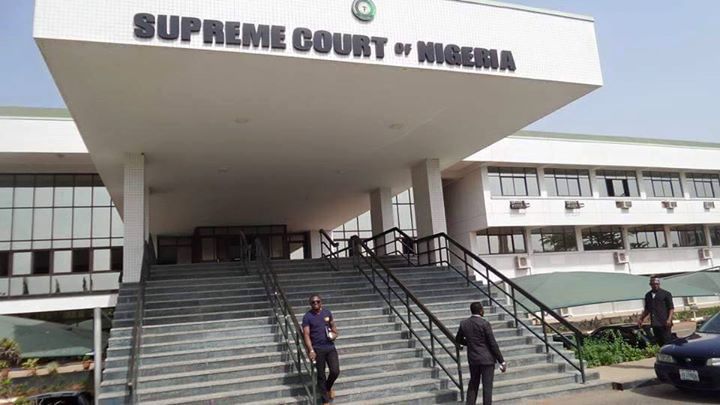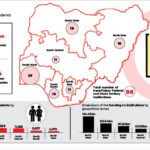The Supreme Court recently gave its verdict on a suit seeking autonomy for the 774 Local Government Areas (LGAs) filed by the Attorney-General of the Federation on behalf of the federal government. Worthy of note is that the court ordered that all funds appropriated for LGAs be paid directly into the accounts of each LGA.
In the judgment, the Supreme Court ruled that any governor who dissolves a democratically elected LGA council is in breach of the constitution; and also outlawed the appointment by governors of caretaker committees to handle the affairs of LGA councils. This judgment also puts an end to the creation and operation of Local Council Development Areas (LCDAs) run by caretaker committees appointed by governors.
There are at least eight states whose LGAs are run by caretaker committees, or who operate LCDA’s run by caretaker committees. The expected end result of the Supreme Court ruling is that the control of the 774 councils by state governors has been halted. The judgment was based on the grounds that the constitution recognises the three tiers of government as being independent of each other, and that the practice of governors receiving and withholding LGA funds was a clear violation of Section 162 of the constitution.
The reason LGAs were created as the third tier of government was to bring government closer to the people and give citizens a sense of belonging through developments at the grassroots level. Although the constitution has undergone several reviews, the issues hindering LGA development relating to the qualifications required for LGA chairpersons, councillors and employees, as well as the operations of Local Government Service Commissions, and direct funding from the federation account have not been addressed.
LGA councils are tasked with representing people’s interests, providing public services, maintaining public spaces, running schools, supervising housing and building plans, as well as ensuring a pristine environment with adequate waste collection. If they work effectively, they should provide almost all essential public services such as health facilities, transportation, sanitation, environmental services, schools and utilities.
LGA councils are also supposed to construct, name, maintain and number local roads, maintain drainage systems, keep the general environment and public spaces clean, and register births deaths and marriages.
Lamentably, a lack of financial resources, inadequate governance structures, corruption, poor implementation of projects, lack of independence, and insufficient public participation mean that LGA councils have always struggled to fulfill their responsibilities. In truth one of the biggest challenges thwarting the nation’s advancement over the years has been ineffective local governance. In reality, the Nigerian LGA administration is flawed by design, fundamentally corrupt, and not fit for purpose.
Despite gulping trillions of naira and hardly providing any service worthy of note, state governments nationwide have spent over N100 billion supposedly supervising LGA’s government affairs. This is the inexplicable cost of doing basically nothing except simply administering other administrators!
With regard to LGA spending, State Joint Local Government Accounts are entrenched in the constitution and imply that state governments are supposed to exercise influence over LGA spending. Paradoxically, the constitution empowers local governments to impose levies on private establishments but lamentably state governments have taken over virtually all responsibilities for matters concerning revenue collection.
The end result of this chicanery is that local governments routinely owe their workers’ salary arrears and are too cash-strapped to carry out any meaningful development.
Regrettably, the evils existing at both state and federal government levels are deeply ingrained in LGA councils. Contract fraud, bribery and kickbacks, ghost workers, security vote slush funds, and embezzlement, are the order of the day having all been learned from those actors who have perfected the art at state and federal levels! In truth many LGA chairpersons and councillors are neither ethically nor educationally qualified to hold such public offices and have simply been put in place by political godfathers whom they pledge loyalty to above the constitution.
There can be no doubting that the constitution needs reviewing so that political actors can distinguish between the powers, responsibilities and functions of the three tiers of government and avoid encroachment of one upon the other. There are those who believe that the problem of governors influencing local government chairmen could possibly be solved by the Independent National Electoral Commission (INEC) taking up the task of conducting local government elections, but the cost implications would require additional monumental funding for INEC, which have serially proven unable to conceptualise, let alone put in practice, an efficient economic and trustworthy electoral processes.
There really is no reason to believe that under the new payment system, LGA chairpersons will be held accountable for any missing funds when the monumental corruption at state level has not led to governors being held accountable. Indeed, alarm bells are ringing because if LGA political office holders copy those holding federal and state appointments, they will reserve the right to purchase fleets of SUV’s, pay themselves self-granted unethical and unjustifiable allowances, spend billions refurbishing offices, and pay former chairmen life pensions!
It’s ironic that the financially opaque National Assembly is insisting on a level of transparency and accountability at the LGA level which doesn’t apply to them.
The nation can only hope that with the Supreme Court granting LGAs greater freedom to initiate and complete projects it will reduce rural/urban migration and reduce suffering at the grassroots not merely line the pockets of those who play politics at the local level.

 Join Daily Trust WhatsApp Community For Quick Access To News and Happenings Around You.
Join Daily Trust WhatsApp Community For Quick Access To News and Happenings Around You.


